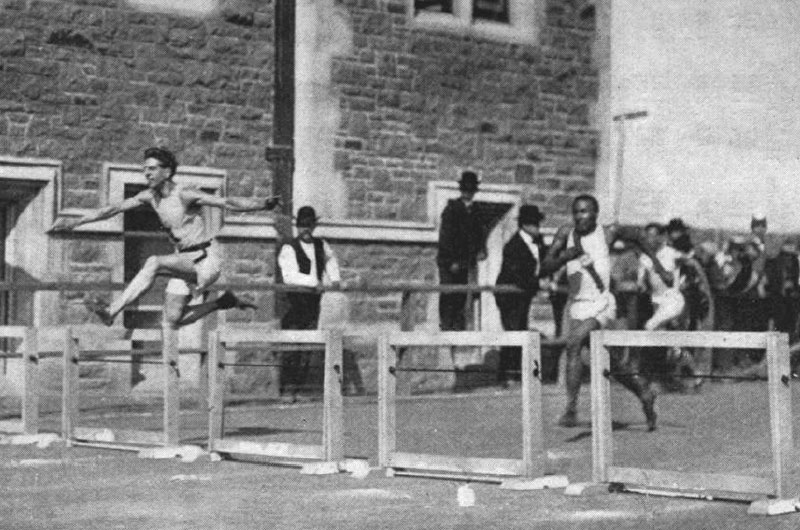

Mayor, others, speak of Olympian who
helped pave the way for blacks in America
Black history month this year almost couldn’t get more appropriate for La Crosse.
The national theme for the month-long honor has to do with “hallowed grounds” associated with some key black Americans and experiences.
People like Olympian George Coleman Poage, noted La Crosse Mayor Tim Kabat at a declaration for Black History Month on Tuesday at City Hall. Poage, an athlete, a man, a black man, who grew up in La Crosse and broke so many color barriers in Wisconsin and beyond as both a student and an athlete.
At Kabat’s side was Western Technical College Multicultural student advisor Bernard Black, who spoke about people needing to educate themselves about the significance of blacks in history.
“What we need to learn (to ask is), ‘What’s the history behind black history month? What were the origins from? Where did it start from?’” Black said. “For all people. Not only just for black people, African Americans.
“It’s up to people to understand that there’s some history there that has not been told to people – in the high schools, in the grade schools, in the public schools. But there’s history out there that people should at least learn.”
It’s a message that hits close to home, as La Crosse builds a park in Poage’s honor that will open later this year. Kabat spoke of the pioneer who helped break the color barrier long before it was every truly broken.
Poage was born in 1880 in Missouri, but moved to La Crosse in 1884, where he spent his childhood and began building quite the resume for helping pave the way for black people.
He was the first black Olympic medal winner, but before that, he was the first black student to graduate high school, receiving his diploma from La Crosse High School in 1899 as salutatorian of his class.
He continued his education at the University of Wisconsin, where he was the first black athlete to run track for the Badgers, even at one point, taking over coaching duties for the track team as a student-athlete, while coach Charles Kilpatrick was out of town.
In 1903, Poage graduated with a degree in history and returned to school, while continuing his collegiate track career. Later in 1903, he was the first black individual Big Ten track champion, winning both the 440-yard dash and 220-yard hurdles.
The next year, the first Olympic games took place during the World’s Fair in St. Louis, Mo.. Black athletes were warned to avoid the Games, where integrated audiences were not allowed.
Poage, of course, did not, and became the first black athlete to win Olympic medals, taking the bronze in both the 220 and 440 hurdles.
Poage went on to teach for a decade in Missouri, before buying a farm in Minnesota. He passed away at the age of 82 in 1962, after 30 years as a postal worker in the Chicago area.










